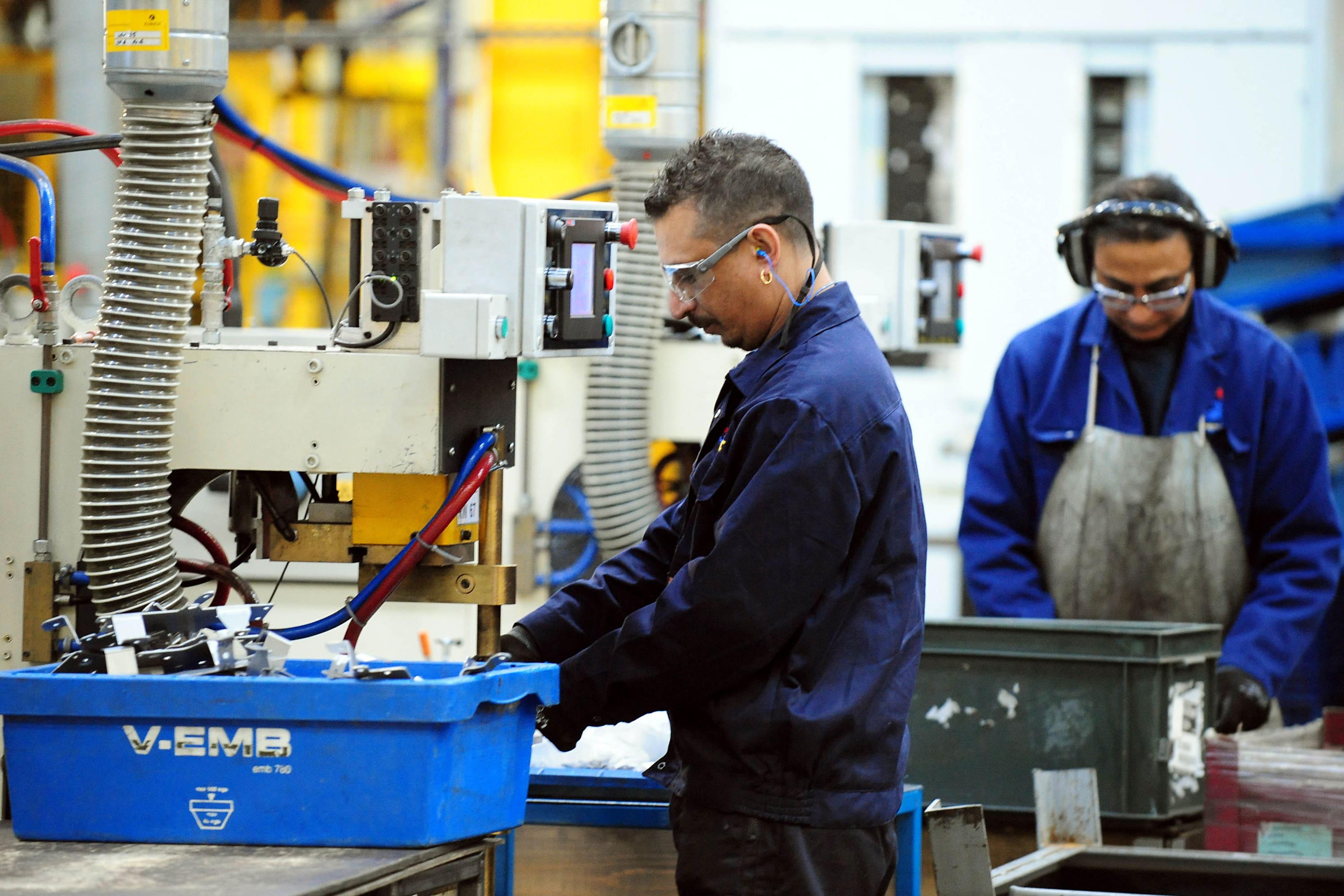Manufacturing slump worsens as post-Brexit checks deter overseas buyers
The closely-watched S&P Global/ CIPS UK Manufacturing PMI survey showed a reading of 47.1 in May, down from 47.8 in April.

Your support helps us to tell the story
From reproductive rights to climate change to Big Tech, The Independent is on the ground when the story is developing. Whether it's investigating the financials of Elon Musk's pro-Trump PAC or producing our latest documentary, 'The A Word', which shines a light on the American women fighting for reproductive rights, we know how important it is to parse out the facts from the messaging.
At such a critical moment in US history, we need reporters on the ground. Your donation allows us to keep sending journalists to speak to both sides of the story.
The Independent is trusted by Americans across the entire political spectrum. And unlike many other quality news outlets, we choose not to lock Americans out of our reporting and analysis with paywalls. We believe quality journalism should be available to everyone, paid for by those who can afford it.
Your support makes all the difference.The downturn in UK manufacturing has deepened, with activity falling to a four-month low in May as post-Brexit trade checks weakened overseas demand.
The closely-watched S&P Global/CIPS UK Manufacturing PMI survey showed a reading of 47.1 in May, down from 47.8 in April.
Any score above 50 indicates the sector is growing, whereas a reading below that figure means it is shrinking.
The hard-hit manufacturing sector has been in negative territory for 10 months in a row, as a prolonged dip in demand has caused new orders to plunge.
It comes despite supply chain issues beginning to ease for firms in Britain.
Manufacturers are finding that any potential boost to production from improving supply chains is being completely negated by weak demand
“Manufacturers are finding that any potential boost to production from improving supply chains is being completely negated by weak demand, client de-stocking, and a general shift in spending in the UK away from goods to services”, said Rob Dobson, director at S&P Global Market Intelligence.
Furthermore, demand from overseas exporters fell for the 16th consecutive month in May, and at the fastest rate since January.
Dr John Glen, chief economist for CIPS (Chartered Institute of Procurement & Supply), suggested it shows that customers in the EU have become “tired of additional administrative Brexit checks”.
Some clients are switching to local sourcing to avoid the post-Brexit trade complications, the survey found.
Industry group Make UK said manufacturing firms want a “unified vision” from the Government for the sector over the next decade as export demand continues to fall.
As well as weaker new orders and clients de-stocking, production levels were also affected by the extra May bank holiday.
Although near-term conditions remain challenging overall, manufacturers are still finding reasons for optimism, including brighter news on the price and supply fronts
Nevertheless, there were bright spots in the survey, with signs of costs beginning to fall for manufacturers, who have faced a long period of price increases.
Companies reported feeling confident about new product launches, hopes for a better cost environment, and recovered market sentiment.
Mr Dobson said: “Although near-term conditions remain challenging overall, manufacturers are still finding reasons for optimism, including brighter news on the price and supply fronts.
“Average input costs fell for the first time in three-and-a-half years, allowing some firms to maintain efforts to repair and protect margins damaged by a long and often severe period of cost inflation.”